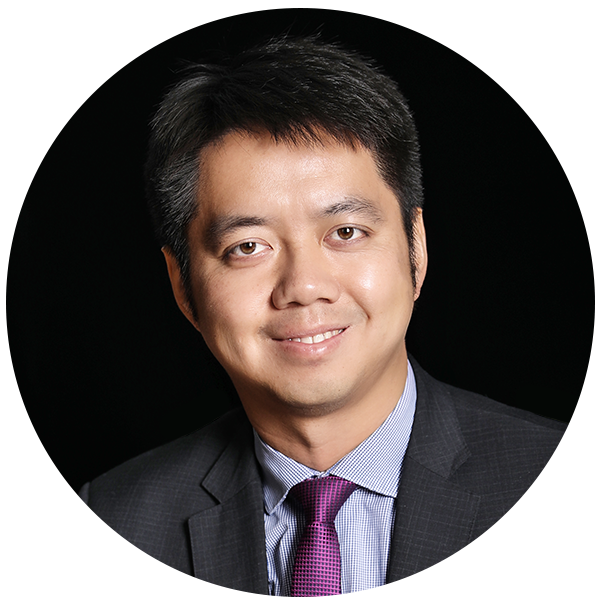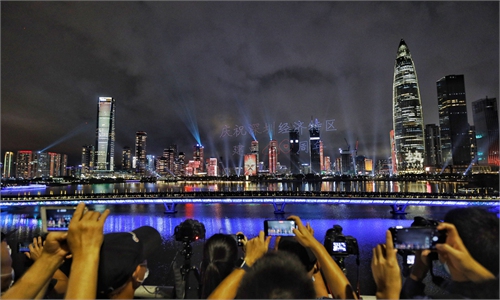New worldview opportunities for China

Illustration: Liu Rui/GT
During my lectures to business people in recent months, I have noticed new changes in their attitudes. They were concerned about China-US relations in the past. Now, entrepreneurs care more about the rest of the world. For example, which countries in Asia, Africa and Latin America have more potential for investment? How might the future landscape of the global investment climate look like? Which countries in the Belt and Road Initiative (BRI) route have stable political situations?
Entrepreneurs are very sensitive to social trends. Hence, the above-mentioned change reflects a major change in Chinese people's worldview. Generally speaking, over the past two centuries, there have been four substantial stages of development. Each development was based on the lessons of the previous stage and fostered the next stage of progress.
During the first stage, Chinese people started to see the outside world. After the first Opium War in the 1840s, Chinese thinkers dispelled the old mind-set of being arrogant - taking aim at the belief that Chinese were superior to foreigners. They instead started to see the strengths of Europe and the US. But it is a pity that Chinese people only glimpsed a part of the world.
During the second stage, when China was bullied by Western powers in the second half of the 19th century, China faced a choice of political systems. After the establishment of the Republic of China (1912-1949), some even advocated to fully copy Western political systems. Instead, the Communist Party of China, founded in 1921, advocated using Marxism to save China. Chinese people faced a choice - the democratic West or the Soviet Union?
In the third stage, Chinese people tilted toward the Soviet Union for revolutionary references. During the West's economic blockade and diplomatic isolation against China, and the US-Soviet Union confrontation, the newly-born People's Republic of China firmly stood in the Soviet Union-led socialist camp. China also gave selfless support to independence movements in the third world.
And in the fourth stage, China started to learn from the West. After the reform and opening-up in 1978, China has attracted foreign investment, technology and management experience from the US, Japan, and Western Europe.
During the 2008 international financial crisis, the myth of the West fell off the pedestal. Now under the Trump administration, the American "myth" has become a "joke." While under the guidance of the BRI, Chinese have now eyed the world with a broader view beyond the West.
For a long time after 1978, when mentioning "abroad" or "the world," Chinese people meant countries like the US, or in Europe, and Japan. When it comes to "connecting with the world," it was more about connecting with the West. Most Chinese people used to prefer to travel abroad to the US, Western Europe, Japan and South Korea. And international studies in China have also focused more on the West. This kind of worldview centered on developed countries has caused a huge psychological blind spot to long-term world values.
The BRI proposed in 2013 has greatly changed the knowledge and thinking of Chinese society, enterprises and academia. Today, Chinese people are paying more attention to regions outside the West, such as the Middle East, Central Asia, North Africa, Central and Eastern Europe, Latin America and so on.
Chinese outbound tourism and investment have also evolved. The BRI-related countries are gradually becoming popular destinations for Chinese tourists. Over 130 million Chinese tourists travel abroad every year. Thailand, Malaysia, Maldives and other places located along the ancient Maritime Silk Road are among the top destinations. The growth rate of Chinese tourism to Iran, Turkey and Egypt far exceeds that to Europe and the US. China is also accelerating the pace of its outbound investment, industrial capacity cooperation, and industrial park construction in the non-Western world
This means that the Chinese are gradually forming a more complete global view. More importantly, China is being fully integrated with the world (not just with the West) as a whole psychologically. China and the world are mutually recognizing, adapting and accepting each other on a global, not just regional, level.
This new change in the worldview of Chinese people means new challenges and, more likely, new opportunities.
The author is professor and executive dean of the Chongyang Institute for Financial Studies at Renmin University of China, and executive director of China-US People-to-People Exchange Research Center. wangwen2013@ruc.edu.cn



